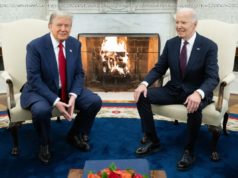U. K. and European stocks have broken through key technical levels in recent days and are now likely to be in long-term «bear» markets, according to one strategist.
U. K. and European stocks have broken through key technical levels in recent days and are now likely to be in long-term «bear» markets, according to one strategist.
Robin Griffiths, global macro team chief technical strategist at U. K.-based currency investment firm ECU Group, explained that «death crosses» had been reached — where markets fall below their long-term trend line, which is then itself crossed by its short-term trend line.
«If you’ve seen a dead cross you’ve probably seen a bull market and you’re now in a bear,» he said. «Some (markets) have formed dead crosses and the message from the charts are the U. K. and core Europe have formed dead crosses and there’s a very high probability they are now in a bear market.»
The U. K. FTSE 100 and the German DAX are both down by around 8 percent year-to date amid a wider slump in global markets. The recent sell-off in technology stocks has compounded the move lower after a market correction earlier this year. Rising interest rates and fears of a global trade war have also sparked concerns that the long run-up in stock markets could end very soon.
Some investors have started questioning whether stocks are reaching the end of their bull market — where prices rise consistently over the long term.
Nonetheless, Griffiths said that not all markets are in immediate danger, adding that there is still at least six to nine months of upside for certain regions.
«The top of the stock market will come before the top of the economy but if that’s 18 months away, we’ve got 6 to 9 months more left in the stock markets that haven’t given death cross signals,» he said on Tuesday morning.
«The rest of the market, in particular the strongest Asian ones, are having a violent correction… And they are very likely to regain their composure,» he said. He added that U. S. and Asian markets are likely to outperform their European counterparts, saying the former should benefit from the White House’s plans to cut regulation, reduce taxes and boost infrastructure spending.
«The best markets are still in Asia, so it’s China, emerging markets and Japan, it’s where you should be putting money and right at the top of the list is commodity-related investments,» he said.






